
Rosemary Dewan is the CEO of the Human Values Foundation which promotes the importance of teaching human values in schools. Since 1995 it has been providing practical, cross-curricular programmes for personal development and behaviour management, integrating SMSC, PSHE education, Citizenship, PLTS and SEAL.
With the new curriculum upon us, Rosemary Dewan of the Human Values Foundation explains how pupils can make terrific strides with an education that embraces hard skills, soft skills and intrapersonal skills...

Following extensive research (Lovat, Toomey and Clement, 2010, see below), education experts consider that “the best laid plans about the technical aspects of pedagogy are bound to fail unless the growth of the whole person – social, emotional, moral, spiritual and intellectual, is the pedagogical target”.
Given that pupils have to learn a huge amount, it can be easy to forget about their emotional wellbeing. The Human Values Foundation’s Rosemary Dewan discusses the importance of this matter.

What subject is dynamic, cross-curricular, student-centric and stimulates children and young people? This is a subject constantly arousing their curiosity, thereby enabling teachers to capitalise on pupils’ eagerness to learn, and affording plenty of practical opportunities for schools to work collaboratively with parents, carers and professionals who are involved in guiding and mentoring children. The answer is values education.
Rosemary Dewan of the Human Values Foundation discusses the importance of helping pupils realise their dreams and aspirations by way of positive reinforcement and open-mindedness, and how emotional support and guidance can lead to real progress.
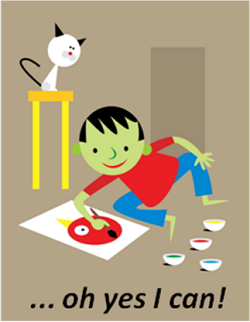
No matter what stage we have reached in our lives, no matter what age we are, it is never too late to have dreams and realise them. When children and young people are given the opportunity to systematically explore values, as an integral part of their education, they get fired up because the process makes so many aspects of learning meaningful and relevant, expanding individuals’ horizons while also developing and strengthening their inner qualities. The effects can be surprising!
Our mindset is key to unlocking our potential. The study of values is an engaging, holistic process that not only builds and strengthens participants’ mental capabilities but their physical and spiritual attributes as well. It appeals because the exploratory process and the activities to reinforce learning are expansive and experiential. Children and young people enjoy feeling empowered as they gradually develop essential emotional and social skills that enable them to better manage and control situations. This is particularly rewarding when, rather than being swamped by negative influences, such as fear and perceived limitations, they can draw upon diligently mastered tools that help them realise their hopes and aspirations.
Rosemary Dewan of the Human Values Foundation returns to discuss the 5-star education system, and how it can help both teachers and students get the most out of the teaching process.
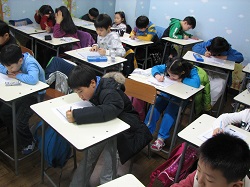
Learning is engaging when children and young people are stimulated and excited by it and see the relevance of it. They are constantly making decisions and it’s helpful for them to begin to understand and become aware of the drivers for their choices. Take for a moment, what it was that made you decide to get out of bed this morning! You will probably soon find that there were some key factors – things that you personally value and consider important. So, how can we help young citizens enjoy making connections while they are learning so that they can develop a consistent approach to their thinking, decision-making, choices and behaviour – and ultimately feel happy and achieve their full potential?
Rosemary Dewan discusses how a student can be virtuous and successful, while dealing with the growing world of social media.
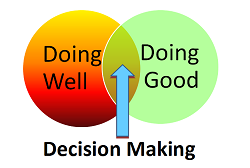
Young people growing up in today’s world are witnessing how individuals’ choices and actions can rapidly be broadcast via social media, such as Facebook, Twitter and YouTube.
It’s all the more important therefore that learning to make informed, principled, well considered decisions is an integral part of their education so that each of them can leave school with their reputation intact, confident of doing well, with a life-long learning mentality that enables them to maximise their abilities and with the desire to be responsible citizens, capable of making the world a better place.
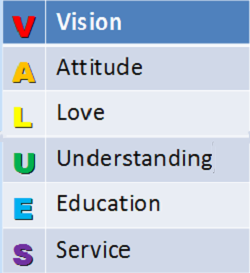
Children and young people enjoy exploring the role of values in their daily lives because of the excitement as they begin to see more relevance in what they are learning. This awakening can help them experience the benefits of a positive mindset and how working on personal qualities, including resilience and patience, contributes to a greater likelihood of achieving their dreams and goals.
Many of us are probably not consciously aware of the degree to which we are driven by what we treasure and feel is important – in short, what we value. However, being more mindful of these influences is empowering
To help children and young people strive to be the best that they can be, they need to start with a vision of themselves.
Here is a simple framework that provides a brief and regular focus on personal progress using the VALUES letters as prompts. It helps to make each day as meaningful and productive as possible. During the course of a week the exercise captures the imagination of participants, allowing their ideas to shape their views of life and to persue high and lasting goals, both in the week ahead and in the longer term.
Keeping a journal helps with the daily discipline and enables children and young people to look back with pride on what they have accomplished.
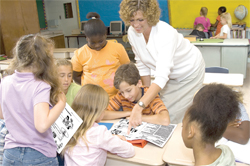
How children and young people feel about themselves has a significant bearing on every aspect of their lives. The more they feel valued, the more likely they are to enjoy their schooldays and be able to succeed in reaching the highest level of their personal achievement.
Schools are expected to offer a stimulating, broad, balanced, relevant and, when appropriate, differentiated curriculum and have high expectations for every single one of their children so that they can achieve success and ultimately, as many of them as possible, have real options open to them when it comes to choosing pathways into their adult lives.
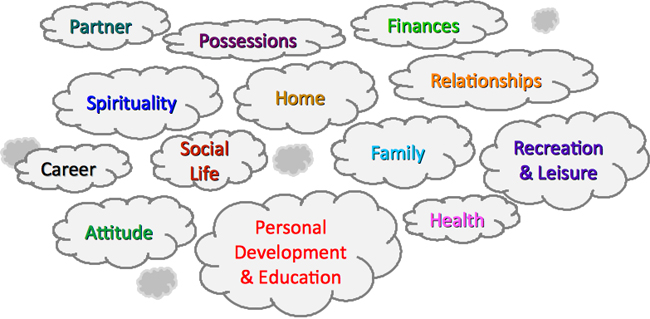
The Human Values Foundation explores how values literacy is such a rewarding curriculum ingredient.
As teachers in England continue to plan for the implementation of their new, inspiring and expansive curricula to take effect from September 2014, now could be an appropriate time to consider a curriculum ingredient found to have widespread, rewarding impacts on children, young people, teachers and other adults making up school communities, along with parents and carers.
A school’s curriculum is designed to meet the various needs of its pupils and, through different, tailored, appropriate, formal learning pathways and informal opportunities, empower them to reach their full potential and prepare them for life. It is recognised that modern curricula need to be more open and flexible than in the past. The challenge is to craft them so as to raise aspirations, deliver tangible improvements in teaching and learning, and lay the foundations to enable learners to successfully manage whatever the future may bring and its dynamic effects on all aspects of their daily living.
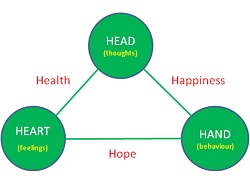
The visions of our highest-achieving schools today are not only concerned with academic attainment but also promoting an integrated, whole-person approach to their pupils’ development, particularly in emotional and social skills.
Going to school is a journey of discovery about oneself, other people and the world we inhabit. As children mature, they take more and more responsibility for reaching their potential. To help them progress, they need:
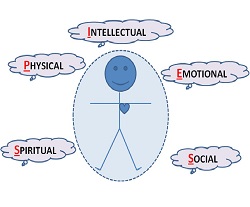
When it comes to education, what really matters in the end?
Does our learning climate enable participants to develop as fully rounded human beings, equipped with appropriate attitudes and skills to reach their potential? Do individuals feel happy and fulfilled? And what about the resulting wellbeing of the children and young people, staff, whatever their role, families and wider communities?
Below is a short, interactive project that could help to 'RAISE' the bar, improving performance and standards in a relevant, interesting and enjoyable way. Firstly, it is worth noting that a holistic approach to education addresses and integrates five aspects of human development.

Education is an investment in children and our collective future. The more informed and joined up our approach to this vital aspect of a child’s development, the more likely the emotional, social, financial, spiritual and physical investments will benefit the individuals, their families, society, communities, nations – indeed the world.
There is a growing emphasis and focus on ensuring that young children are 'school ready' and those progressing from their primary school are 'secondary ready'. When a young person’s compulsory education draws to a close, he or she needs to feel ready to go out into the world.
At this stage, young people are faced with decisions that will significantly impact the rest of their lives, including whether to continue with tertiary education or venture into the workplace.
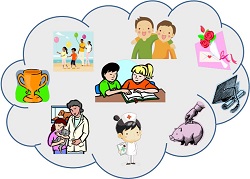
Some people wonder whether in today’s world teachers are proxy parents and, to a degree, social workers. The truth is that children and young people are constantly learning, making understandable mistakes and in need of encouragement in all kinds of settings.
To enable them to flourish and lead happy, healthy and successful lives they require a whole-person, holistic education that opens up their hearts and minds. Supportive home/school partnerships are vital for learners’ wellbeing and the integration of their mental, physical, spiritual, emotional and social development.

A community-driven platform for showcasing the latest innovations and voices in schools
Pioneer House
North Road
Ellesmere Port
CH65 1AD
United Kingdom